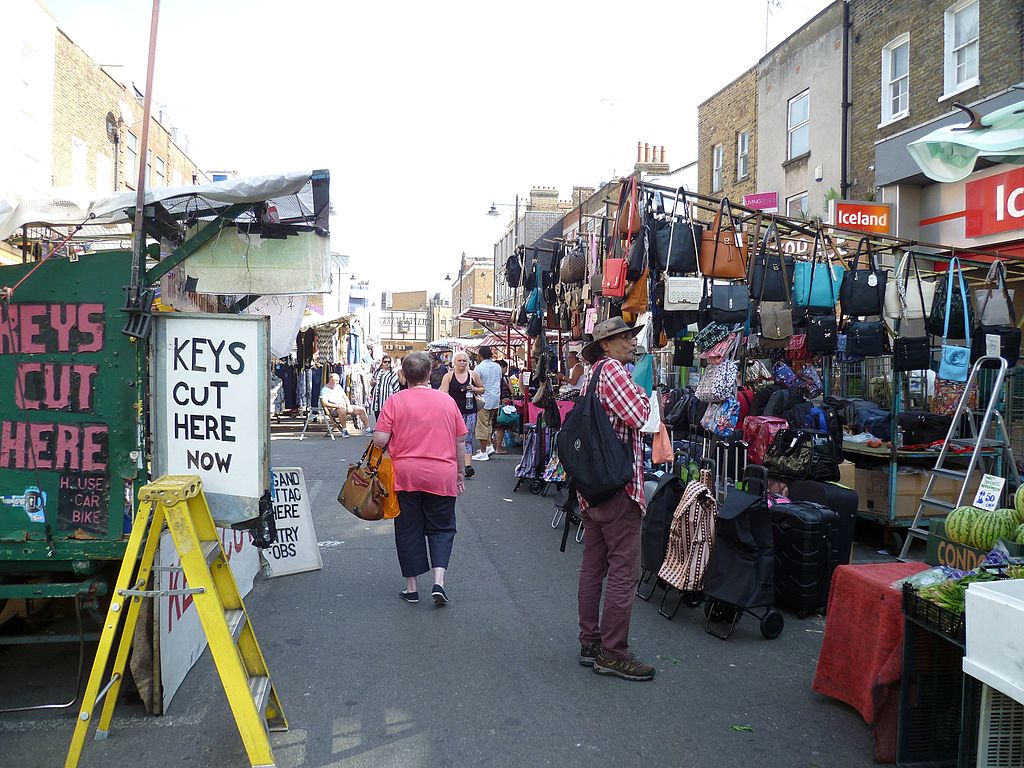Developing a markets strategy for an inclusive economy in Islington
Written by Myfanwy Taylor

On Tuesday 8 July, Frances Northrop (New Economics Foundation) and I shared emerging findings from the Markets4People project with Islington Council’s Inclusive Economy Board, chaired by Councillor Asima Shaikh.
Being home to some of London’s poorest and wealthiest residents, Islington Council has been working to reduce income inequalities since its 2010 Fairness Commission. Drawing on both new municipalist and community wealth building initiatives from Barcelona to Preston, Islington Council has been exploring new policy levers and tools to intervene to prevent the displacement of existing communities and businesses. Having focused first on affordable workspace, the Council is increasingly turning its attention to markets.
Islington Council’s Inclusive Economy Board brings together councillors and officials from across the breadth of the council, inviting in experts to help them think through and advance their policies and strategies. It was great to see representatives from street trading; employment, skills and culture; planning and development; communities; and inclusive economy teams round the table on 8th July to discuss the place of traditional street markets in an inclusive economy. This was a great opportunity for Frances and I to share emerging findings from the Markets4People project with the Council, while also learning from the excellent work they are doing to join up across the council and advance a progressive agenda for Islington’s markets.
organic, self-built, interconnected and fragile
Frances Northrop (Principal Director for Communities and Localities at the New Economics Foundation, and Markets4People Co-Investigator) began by providing the context for thinking an alternative approach to developing markets through a discussion of the contrasting cases of Birmingham, Bradford, Preston, Latin Village/Seven Sisters Market and Queen’s Market. She described how many markets were seeking to appeal to tourists as well as the local community, working with architects and advisors who often applied a standard model, potentially ill-suited to the local context. Expensive redevelopment schemes were often accompanied by rising rents and selection processes which would exclude existing traders not seen to ‘fit’ the new market. Even well-intentioned local authorities encountered difficulties due to a lack of knowledge about markets or engagement with traders. The need for better understanding about the social value of markets was as pressing as ever: more than 10 years after NEF’s report into the economic and social value of Queen’s Market, similar research is underway on Latin Village/Seven Sisters Market, which remains threatened by a built-to-rent development. Frances described markets as ecosystems - organic, self-built, interconnected and fragile – and stressed the importance of who owns and manages markets.
Nearly a year after Parris Larridge (the member of Islington Council’s inclusive economy team focusing on markets) first contacted Markets4People to ask for any advice on how to develop an inclusive markets strategy, I was then glad to be finally able to share some of the emerging findings from our interviews, workshops and case study research. Our interviews with key actors shaping the debate on markets in the UK reveal widespread concerns about the gentrification and displacement that often accompany existing approaches to market improvement and redevelopment schemes, and a strong desire for an alternative vision for traditional retail markets, distinct from specialist, events, farmers’ or food markets. Our workshops with operators, traders and campaigners show that while markets’ holistic economic, social and cultural value was widely appreciated, different actors and interests had their own specific perspectives. This raises a tension, highlighted in our early policy briefing with NEF, between developing standard tools to develop national-level information about the economic, social and cultural value of markets, and context-specific, bottom-up and participatory approaches which involve the traders and communities which use and value markets. Background research on our three case study markets demonstrates that even local authority operators of successful traditional retail markets struggle to make the case for investment (even retaining their own surplus) and are often isolated from wider policies and strategies for improving town centres and high streets.
While it is too early to make definitive recommendations, emerging findings from the Markets4People project suggest an emerging alternative vision for traditional retail markets which we hope is helpful to Islington Council’s ongoing work:
- More collaborative working amongst operators, traders, user groups and wider partners
- Expand community and trader owned and managed markets; potential to make use of legislation, support and funding.
- Make a broad business case for re-investment of operating surplus/new investment, exploring economic, social and cultural value.
- Ensure surveys/research aims to understand functions and benefits of existing market, not just looking at what needs to change. Make use of tools for measuring social value as well as working closely with traders, customers and local community groups.
- Pursue incremental rather than transformative redevelopment and improvement schemes which retain and support existing traders, minimise disturbance during construction works, make long-term commitments to low-cost rents, take care to ensure new initiatives/areas will benefit existing traders, incentivise and support local supply chains, and provide space and support for existing social and community functions.
- Markets as part of emerging experiments in bottom-up and democratic local economic development, ensuring improvements involve and benefit local people e.g. community wealth building
Our presentation provoked a series of productive and generative exchanges amongst the various teams represented around the table, as Councillor Shaikh explored the possibilities to make links between markets and adult community learning, schools and colleges, libraries, community groups and children’s activities. These discussions really demonstrated how involving local authority markets teams in wider discussions with other parts of the council can reveal shared goals and the potential for joint working. It was inspiring to see Islington Council moving towards a whole council approach to their markets strategy. We were glad to have such a positive reaction to our presentation and look forward to further dialogue and engagement with Islington Council, including on the potential for trader and community owned and managed markets.
(image: Philafrenzy [CC BY-SA 4.0 (https://creativecommons.org/licenses/by-sa/4.0)])
